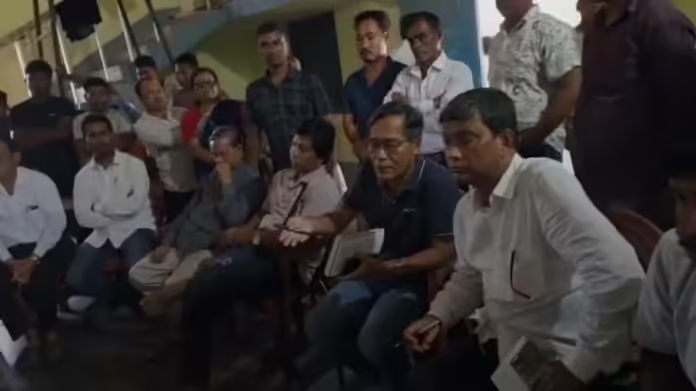Tripura’s opposition party, CPIM, has demanded a thorough investigation into the unrest that recently erupted in Gandatwisa, Dhalai District. The unrest began after the tragic death of a young boy, which sparked widespread vandalism and destruction of property.
The CPIM has called for an impartial probe into the events surrounding the incident. Party leaders argue that the situation has escalated due to insufficient intervention by local authorities. They claim that the unrest reflects broader issues of governance and accountability in the region.
According to reports, the boy’s death led to violent protests from residents, who expressed frustration over alleged negligence and mishandling by authorities. The protests soon turned into a larger crisis, with damage reported to both public and private properties.
The CPIM’s demand for a probe includes calls for identifying those responsible for both the boy’s death and the subsequent violence. The party insists on transparency and accountability to ensure justice for the victim and to prevent future incidents.
Local officials have faced criticism for their handling of the situation. Residents have expressed dissatisfaction with the response from law enforcement and emergency services. Many believe that prompt and effective action could have mitigated the extent of the violence.
The party’s demand has garnered support from various local groups who are advocating for a fair investigation. They argue that the unrest in Gandatwisa highlights ongoing issues within the administration that need urgent addressing.
The investigation will likely focus on the circumstances leading up to the boy’s death, the police response, and the management of the ensuing unrest. As the situation develops, the CPIM and other concerned parties will be closely monitoring the investigation’s progress.
The authorities are expected to release a statement soon regarding the steps they will take to address the demands for a probe. The outcome of this investigation could have significant implications for the region’s political and social landscape.




